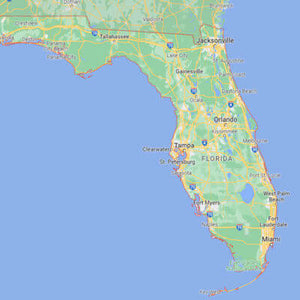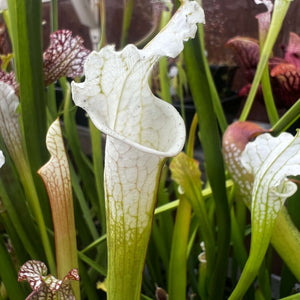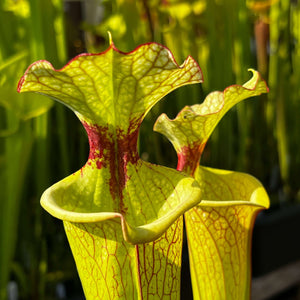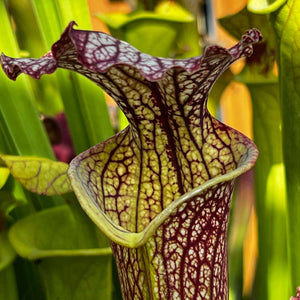Sarracenia × moorei 'Leviathan'
Supplied in a 9cm Pot
Your plant will arrive potted, in a carnivorous plant soil perfect for Sarracenia.
Seasonal Information
Sarracenia are perennial plants. Heading into Winter, they may have very few pitchers, or none at all, when purchased. Don't worry, they'll be back in the Spring!
Delivery Information
Delivery from £4.99 (mainland UK). We aim to dispatch orders within 3 working days.















